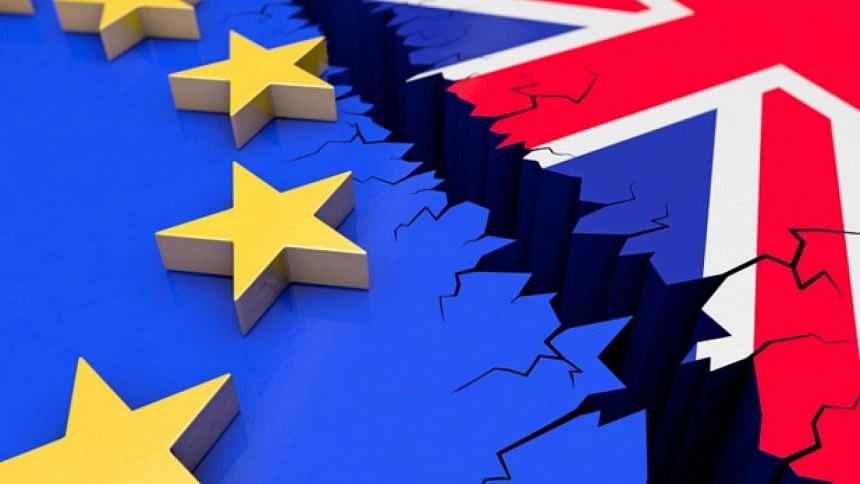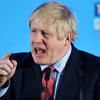Theresa May and the future of negotiations

Theresa May, the British Prime Minister (PM), is a tough cookie. She took charge on July 13, 2016 following the Brexit vote, and has since then steered UK through some very choppy waters. Tories almost lost the snap polls she called last June, and celebrated the first anniversary of her premiership amid growing uncertainty regarding the future of UK after it leaves the European Union (EU) on March 29, 2019. Recently, the PM landed herself in trouble with very lacklustre performances at a EU summit in Florence, Italy and a Conservative Party conference in Manchester, England. However, all said and done, the entire coterie of her rivals for premiership, including Boris Johnson (Foreign Secretary), Philip Hammond (Chancellor of the Exchequer) and David Davis (Secretary for Brexit), have offered their unqualified pledge of allegiance to her. However, that did not end the bickering over Brexit negotiations or dampen speculations about what type of deal UK should or will be able to work out with her EU partners.
Since Brexit negotiations began last April, there have been some dissensions within the ruling Conservative Party on the stance that the UK will take and the fate of the country should negotiations fail. Hanging in the balance is the future of the economy, the status of citizens of UK in EU countries, and vice versa, and the status of the legal framework that now ties UK to EU. British press accounts, where the PM is often jeered for her seeming equivocation on Brexit and the contradictory speeches by the four Brexiteers (Johnson, Hammond, Davies, and Fox), have only exacerbated the feeling of uneasiness in business circles and even among negotiators who are at a loss as they try to work through the terms of separation from Europe and at the same time not give away the kitchen sink. At the Manchester party conference, International Trade Secretary Liam Fox and David Davis have called for an end to pessimism over Brexit and for the British public to "keep their eyes on the prize" on offer.
The key sticking point at this juncture, apart from the money that UK is willing to offer towards EU's budgetary commitments, is the trade negotiations. If the negotiations fail, and there is no trade deal by March 2019, British exports will no longer be able to enter European markets duty-free, as they currently do, and the tariffs on British products might negatively impact exports, productions and employment. This scenario, however, is not envisioned by Liam Fox, who said that while "he wanted a new deal to be done it would not be the end of the world if an agreement could not be reached!" Philip Hammond, the Chancellor of the Exchequer, immediately retorted that no deal would represent a "very, very bad outcome" for Britain. Fortunately, Theresa May in trying to keep the warring factions from derailing the Brexit negotiations, has indicated that she wants a balanced trade deal with EU. She rejected both options offered, the Canadian free trade deal and the pact that governs EU trade with countries such as Norway and Iceland. The PM considers that the European Economic Area (EEA) pact in which Norway and Iceland are members as close clones of the EU and would tie UK to the same swath of regulations which British voters rejected. While the recently activated trade compact between Canada and EU, known as Comprehensive Economic and Trade Agreement (CETA) is considered a model for future ties between Britain and the EU after Brexit, the PM has voiced her concerns about it too.
Previously, the European Union had indicated that their three main concerns were the rights of 4.5 million expatriates, Irish border arrangements, and settlement of British financial obligations, before they sit down to discuss a post-Brexit free trade pact. Following the latest round of discussion, once again finances and how much UK was willing to cough up is reported to be holding up progress in these talks. Pro- and anti-Brexit forces are once again trying to influence public opinion. Boris Johnson claimed once again that EU could save £350 million per week, while UK's statistical the statistical office contradicted him, and it appears that it is actually half that amount. And then, the gains from free trade with EU is equivalent to this amount. At the next round of talks, in mid-October, both sides will do some tough bargaining behind the scenes to settle the "Brexit bill". As one commentator observed, "The question is probably only what cheque size we have to write to appease the accountants at the European Commission, who are cross that they are going to lose £19 or £20 billion a year out of their budget."
Looking ahead, Theresa May and her cabinet will need to clear the deck for the trade negotiations with EU to begin as soon as UK is ready and has a clearly outlined strategy. While the post-Brexit era will offer UK an opportunity to pursue new trade arrangements with US and the rest of the world, its ties with EU will still be important. As she and David Davis know well, trade negotiations with EU will be a tough bargaining game. The ruling party has to agree on how much they are willing to offer to gain the free access UK will aspire for. And the deals have to be done before 2019, and during this time the government needs to marshal the best trade lawyers and economist, and invest in business intelligence. And failing that, the UK government could attempt to "neutralise the two-year time limit by agreeing a transition arrangement to govern UK-EU trade relations for as long as necessary between when the UK leaves the EU and when a longer-term agreement is concluded," according to a London School of Economics policy paper.
Dr Abdullah Shibli is an economist and Senior Research Fellow at International Sustainable Development Institute (ISDI), a think tank.










Comments